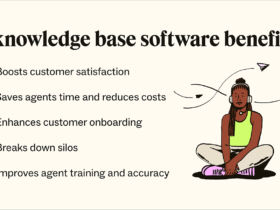Business Analysis is a multifaceted and integral component of the modern business landscape. Business analysts play a pivotal role in bridging the gap between business needs and solutions, ensuring that organizations operate efficiently and effectively. In this blog post, we’ll embark on a comprehensive exploration of the role of a business analyst, shedding light on what it entails, its importance, and the path to becoming one, including the relevance of a Business Analysis Course.
Table of Contents
- What is Business Analysis?
- The Role of a Business Analyst
- Problem Identification
- Requirement Elicitation
- Analysis and Documentation
- Solution Development
- Stakeholder Communication
- Testing and Validation
- Continuous Improvement
- Conclusion
What is Business Analysis?
It’s important to comprehend the basics of business analysis before diving into the nuances of the position. The field of business analysis is concerned with determining the requirements of businesses and coming up with workable solutions to meet those demands. It entails assessing the systems, procedures, and operations of a company to pinpoint opportunities for innovation, improvement, or optimisation.
Business executives, project managers, and IT specialists are just a few of the stakeholders that business analysts serve as a bridge between. They act as a link for efficient communication, ensuring everyone agrees with the goals and requirements of the company.
Tasks that fall under the broad category of business analysis include:
- To ensure that all parties know what is required for a project or effort to succeed, business analysts collect and record specific needs from stakeholders.
- They examine current workflows and processes to identify bottlenecks or potential improvement areas.
- Business analysts often use data to find trends, patterns, and insights that might inform decisions.
- Assessing possible solutions and suggesting the best course of action in light of the objectives and limitations of an organisation.
- Business analysts need to be very skilled communicators to explain results, lead conversations, and make sure everyone agrees.
The Role of a Business Analyst
Business analysts participate in numerous phases of a project or business process and wear multiple hats. Their multifarious duty includes the following important duties:
Problem Identification
The first step in a business analyst’s path is often to discover possibilities or challenges inside the organisation. They interact with stakeholders to learn about their wants, objectives, and pain areas. Detailed investigation, interviews, and data analysis are used in this phase to identify the problems that must be fixed.
Requirement Elicitation
Business analysts begin by identifying the issue and then proceed to gather and record requirements. This entails gathering in-depth information from stakeholders via surveys, seminars, and interviews. The objective is to provide a thorough and precise set of requirements that act as the project’s framework.
Analysis and Documentation
Business analysts are adept at decomposing requirements and complicated issues into smaller, more manageable chunks. To comprehend the present situation, they examine data, procedures, and systems; they then record their findings. All project participants may turn to the documentation as a point of reference.
Solution Development
Business analysts collaborate with stakeholders to develop and provide solutions based on their analysis. They work together with technical teams, project managers, and subject matter experts to create a workable strategy that supports the goals of the company.
Stakeholder Communication
The core responsibility of a business analyst is effective communication. They act as a bridge between parties with different goals and points of view. Throughout the project, business analysts make sure that everyone is informed and involved, which promotes cooperation and alignment.
Testing and Validation
Business analysts may participate in the testing stage to guarantee that the created solutions adhere to the specified specifications. They assist in creating test cases, verifying the results, and addressing any variations from the initial requirements.
Continuous Improvement
Since business analysis is an iterative process, business analysts are often in charge of monitoring how well solutions are being implemented. To guarantee continuous performance, they ask for input, assess work, and suggest changes or additions.
Conclusion
A business analyst plays various demanding and vital roles. By bridging the gap between business requirements and solutions, business analysts guarantee the smooth and productive operation of organisations. Taking a business analysis course may help you realise your full potential in this exciting and fulfilling subject, regardless of whether you’re considering pursuing a career in business analysis or want to improve your current abilities. By tackling their problems, seeing their potential, and encouraging development and innovation, you may have a real influence on organisations by accepting this post.

































